Roll For Insight: Ritin’ Wurds Good
May 24, 2019 by dracs
Following on from Ben's topic last week of finding ways through The Imagination Gate, I decided to take a look at some tips for turning our tabletop tales into stories.
Everyone, no matter how focused they might be on a game, has a tabletop tale to tell. We've all experienced those moments where the miniatures on the board transform in our mind's eye into warriors engaged in epic battles or those RPG sessions that leave us thinking "I've really got to write this stuff down!" For many, myself included, telling tales in this way is an integral part of the gaming hobby, and with the advent of sites like DriveThruRPG, it has never been easier to find an audience for your game writing. However it does sometimes surprise me how many people have these stories, want to write them, but don't feel that they can. There sometimes seems to be a misconception that they “won’t be good enough” or that writing a story is this strange, unattainable form of magic. But, to paraphrase one of my favourite comic characters when he stepped off the page and talked to his creator, “I’ll tell you the ultimate secret of magic. Any **** could do it.”
Don’t get me wrong, writing well is hard. It takes a lot of effort and time and patience and practice. But there is still a lot of joy to be found in just getting those words on the page and in sharing your stories with others. So I thought I’d share a few tips for those who fancy giving it a go themselves.
A quick caveat here: I make no pretence to being an authority on writing. Telling stories is something that really boils down to finding a way that works for you. What I’m writing here is based upon my own experiences, so feel free to take what works and jettison the rest into the nearest sun.
In The Beginning…
Where to start? Well, obviously you need a story, right? Not necessarily. There are generally considered to be two types of writers, referred to as Gardeners and Architects, or Experience Writers and Planners. One type carefully constructs their story, planning out every aspect of it in advance before approaching that first draft. The other type gets an idea and just goes for it, planting the idea and seeing what it grows into. Stephen King would be a famous example of an Experience Writer, while Brandon Sanderson is most definitely a Planner.
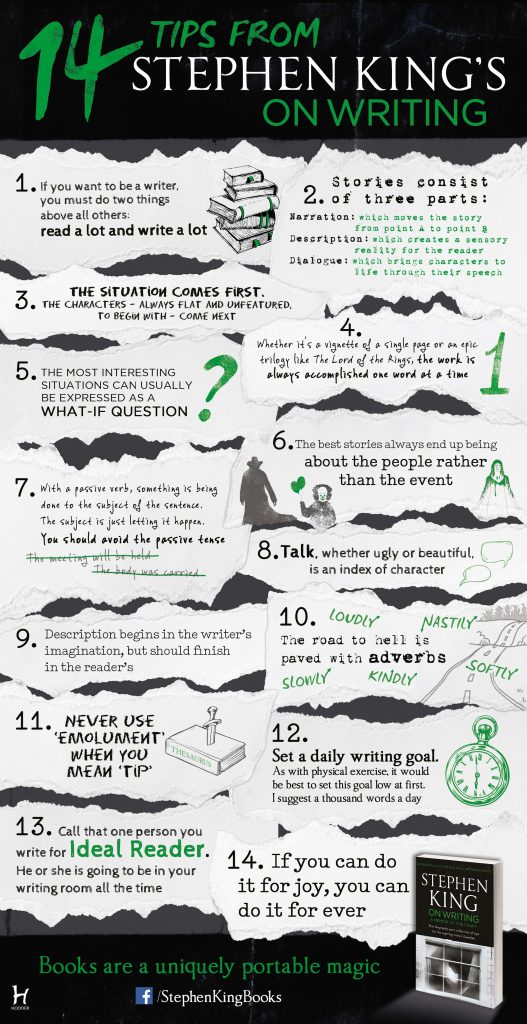
Infographic from Hodderscape
I tend to fall into the Experience Writer camp. Often, I’ll begin writing with just a scene in mind. A rotten, old fridge sitting in the corner of a room, a face appearing at a window, a little girl with glass where her eyes should be. I start with that, I scrawl a few notes, leave it for a while, come back, write the scene a bit more, see what happens. Sometimes I might discover I’m writing the middle of a story before I’ve written the beginning and will have to go back and craft that later. Sometimes it’s the ending and I work my way back. Usually, I have a beginning and the ending makes itself clear as I start writing that first draft, toying with ideas, themes, and characters until I have an idea of what the shape of the story is. Once it’s finished, I’ll rework the whole thing to match my final image of the story, but that’s getting ahead of ourselves.
The point is you really can start anywhere, from a few jotted points in your notebook to a full paragraph describing the nature of the character, the scene, the world. Start where the idea is and see where you go from there. Just keep yourself open to inspiration, whether this is a particularly epic moment in a game you just played or an image in a dusty old book you found lying at the back of your cupboard.
Often it’s as simple as asking yourself the question “What if…” and seeing where that takes you.
The Bricks and Mortar
Now we get to the tricky bit. Now you have to write. Get those words on the page. Go away. Come back. Do it again. Keep writing. Get that story out and onto the page. No one can see it in your head. Just put one word in front of the other until, at last, you have a story staring back at you from the page. This can be difficult. The genesis of a story is always its most exciting moment. That’s when it’s sitting there, a perfect, glittering thing in your mind. Once you start typing, then the doubt sets in. Neil Gaiman once said that every writer secretly wishes that the pixies would come and finish the story in the night. But unfortunately, the only job the pixies will do if you leave it for them is the drying up (I leave the dishes out and they’re dry in the morning! Ergo fairies did it).
There are ways around this. The best way is to create a routine. Many writers have a set time where they write. They try to get half an hour a day to get a few words onto the page. Hemingway used to wake up at 5am each morning and write until 12. Others had to force themselves to write. Maya Angelou used to rent a hotel room and give the staff strict instructions that she wasn’t allowed to have a bottle of wine unless she showed them the pages she had written that day. Douglas Adams once had to be locked in a room to hit his deadline and wasn’t let out until he had posted the manuscript under the door. Those are extreme examples, especially when we’re talking more about writing for pleasure, but it does go to show you how tricky this stage of the process can be. Bribing yourself can be good (like Maya Angelou’s bottle of wine) or having another writer or friend to hold you accountable.
Most important though is not beating yourself up if you do fall behind. Life is a tricky business and unless you’re a full-time writer you’re unlikely to have all that time available to you. Things get in the way, and sometimes you do just need a break. That’s fine. Just make sure you come back to the story. The worst story ever published is still worth more than the best story never written. This includes the Twilight series. Yes, even Fifty Shades of Gray. Well, maybe Fifty Shades of Gray… Probably.
One thing I find helps me is not letting myself tell people about a story I’m working on until I have finished that first draft. This can be hard as I am usually busting with enthusiasm for it and want to tell them everything about this great idea I’ve had about a hamster who learns to play the drums. But if they’ve heard me talk about it in extensive detail, with constant updates on that hamster’s personal journey and struggle with the fast-living rock-and-roll lifestyle, why would they want to read it? That tends to motivate me to finish the story so I can get it into their hands and hear their inevitable words of glowing praise.
Please Proof-Read
Here we come to a point that will be more or less applicable depending on what you want to do with the story. If you’re just writing for your own pleasure and that of your friends this final step may not be as vital. And there is nothing wrong with doing that. When I’m stuck for ideas, I often just write something for the hell of it, with no intention of going back and editing. I’m just writing it for the fun and maybe for the entertainment of a few others (see the old stories I wrote in the forums to accompany the Kingdom Death Let’s Plays). However, if your intention is to put the story out to the world, maybe even to submit it somewhere, then YOU’VE GOT TO PROOF-READ!
A few months back, we ran a competition that included a couple of fiction submissions as entries. Most of these had good ideas and promising characters. But reading through them it was glaringly obvious which ones had been proof-read and which ones had skipped that step. It made all the difference on how I viewed those final stories and how much I enjoyed reading them. This is something you hear a lot among publishers. If a story is full of grammatical errors and spelling mistakes in its first paragraph, there is very little chance they will read beyond that. The story may be great, but if the writer didn’t take the time to make sure their work was of the utmost quality that won’t fill a publisher full of hope.
There are a few ways to do this. First, and most important, give yourself some distance. Print the story off so you have a physical copy. Then put it in a drawer and forget about it for a week. Perhaps a month. When you come back to it, you should be able to view it objectively and see the mistakes that you were too close to see before. Grab a red pen and start marking your own work as though it was someone else’s. Once you have those changes made, you’re ready for the beta readers.
Beta readers are incredibly important if you wish to submit your story somewhere as they are able to look at it with fresh eyes. Give the story to some people you trust. Sure, give it some someone you know will be kind. That sort of feedback is great for your confidence, but also make sure you hand it to someone willing to tear it to shreds. Beta readers can spot the inconsistencies you didn’t realise were there. It’s why, even now, George R. R. Martin will get caught out by fans when he accidentally writes in a minor character he killed off two books back. They spot the plot holes and they point out the embarrassing inconsistencies. I once wrote a dramatic scene about a ship pulling into harbour. I had it emerging from the mists, an eerie green light playing about its bows. It made no sound as it pulled up to the jetty and let down the plank. I was very proud of the scene, which I felt was nicely atmospheric. That was until my dad, a beta reader I can always trust and a man who spent most of his life around boats, pointed out that sailing ships don’t park like cars. D’oh!
I hate editing. It is by far and away my most loathed part of writing. And because I am an experience writer, and often don’t know the final shape of a story until I am half-way through it, I have to do it a lot. There are so many stories sitting on my computer still in their first drafts because I can’t bear to face the heavy re-writes I know they need. I have a whole novel currently sitting on its fourth draft that I haven’t opened up for two years because the gaping plot hole in its story makes me break out in a cold sweat. But this is still something I have to do and I try to set aside some time every week to go over my latest project and identify what needs to be stripped away, what needs to be added to, and what, despite my great affection for a particular line, adds nothing to the story. This is the kill your darlings part.
At the end, you’re left with a story you can be proud of, streamlined, sleek, and ready to go out into the world.
What Now?
There are always plenty of opportunities to get started writing for tabletop games. Black Library, for example, will on occasion put out calls for short stories, as recently happened for their revival of Inferno! Admittedly, they’re a hard sell, but you never know your luck. Just keep an eye out for those submission calls.
The internet has brought with it even more opportunities for you to bring your work to gamers. Onyx Path, as well as keeping open for freelance submissions, has the Storyteller Vault for players to upload their own work based around White Wolf IP, as well as Canis Minor for those who want to add to Pugmire.
Outside of this, DriveThruRPG itself allows you to self-publish your own, original game content, as podcaster Alex Flanigan did for her own game Coffee Detective.
This is not to mention the option to share them in spaces like our own forums and project spaces, or the forum spaces many games companies run (Wyrd Games, for example, have a dedicated Writing Room section).
In other words, it has never been easier to present your work to the world.
Aside from publishing your work, having a complete piece of writing can be used to enhance your games further. Having a member of the party chronicle the adventure is extremely cool and serves to enhance an RPG for everyone involved. A well-plotted campaign, with suitably epic narrative, can get everyone in a club involved and engaged. For myself, one of the best role-playing experiences I had was when I played a gonzo journalist, loosely based on (ripped off from) Spider Jerusalem.
After every session, I wrote a report on the events in the style of my character. Not only did this prove a lot of fun, it also snagged me a bunch of extra experience points from the GM.
With all that in mind, writing stories can be a great addition to the tabletop gaming hobby. Now all that’s left is to pick up that pen, or sit down at that computer, and dream something into being.
Other Bits of Advice
- Buy notebooks you’ll care about. That way you won't lose your work.
- Read everything, especially bad stuff. You learn what not to do.
- Don't discount any idea. Jim Butcher once created a series based on the challenge of combining the lost Roman legion with the concept of Pokemon.
- Find out what your favourite writers have to say about writing. And don't be afraid to ignore it (Terry Pratchett gave me perhaps the worst piece of writing advice I have had in terms of my own style).
If you have a story you'd like to share, post a link to it in the comments below.
"...there is still a lot of joy to be found in just getting those words on the page and in sharing your stories with others"
Supported by (Turn Off)
Supported by (Turn Off)
"...all that’s left is to pick up that pen, or sit down at that computer, and dream something into being"
Supported by (Turn Off)































![TerrainFest 2024 Begins! Build Terrain With OnTableTop & Win A £300 Prize! [Extended!]](https://images.beastsofwar.com/2024/10/TerrainFEST-2024-Social-Media-Post-Square-225-127.jpg)

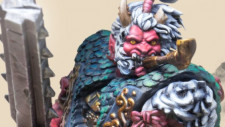
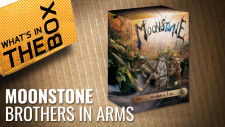






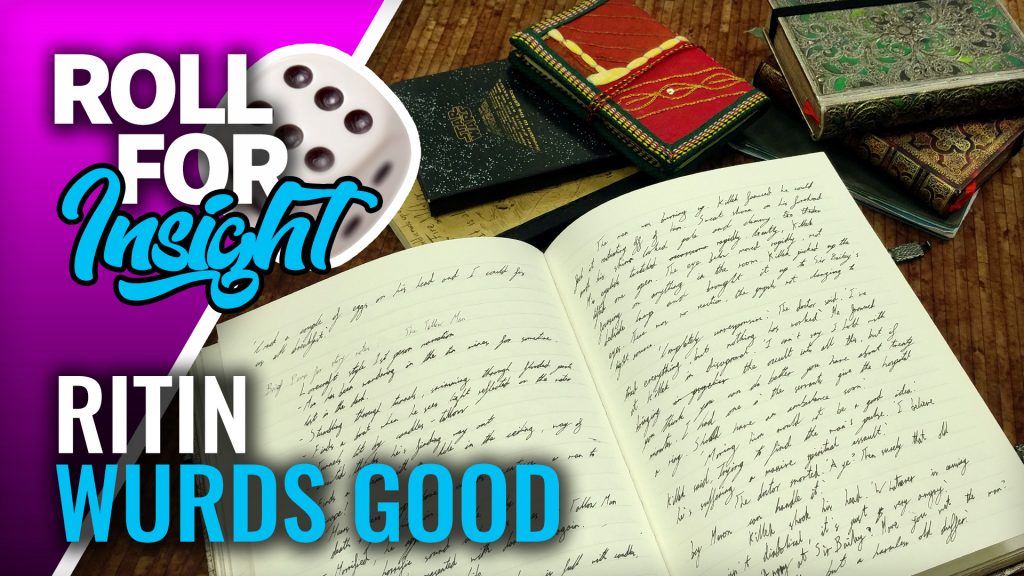
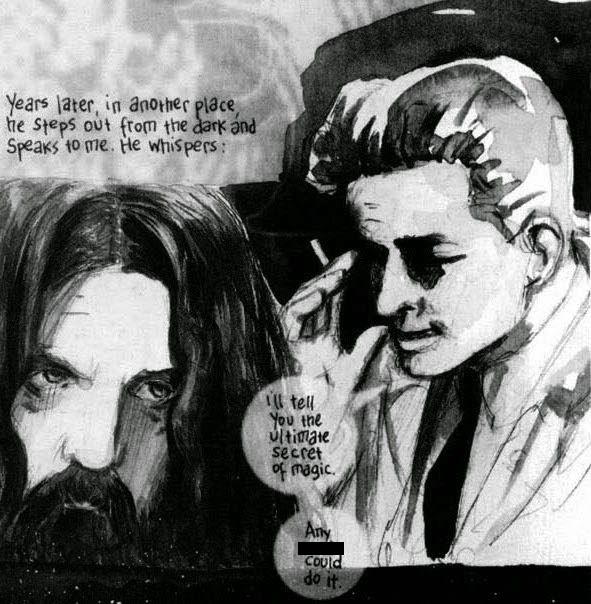
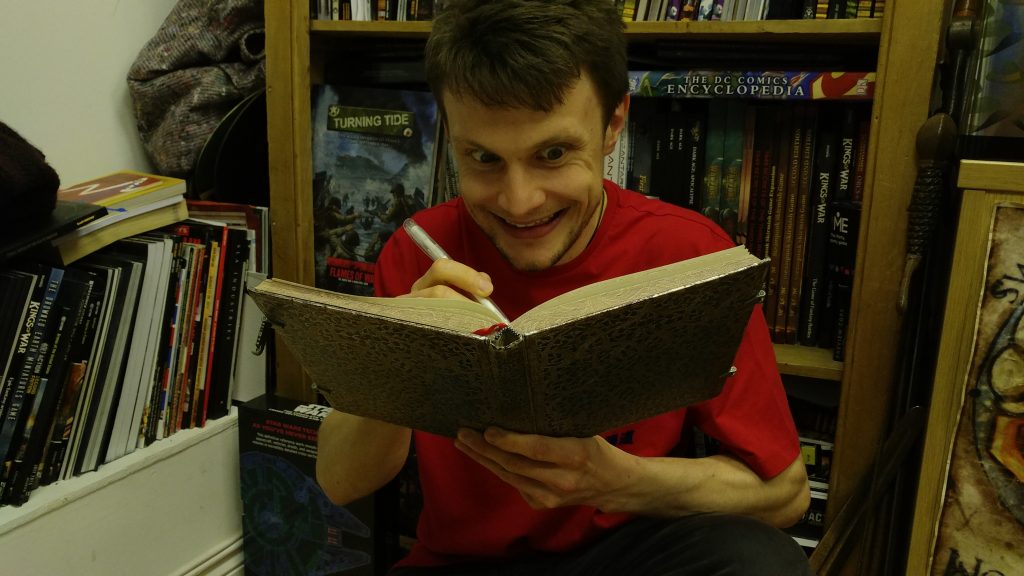
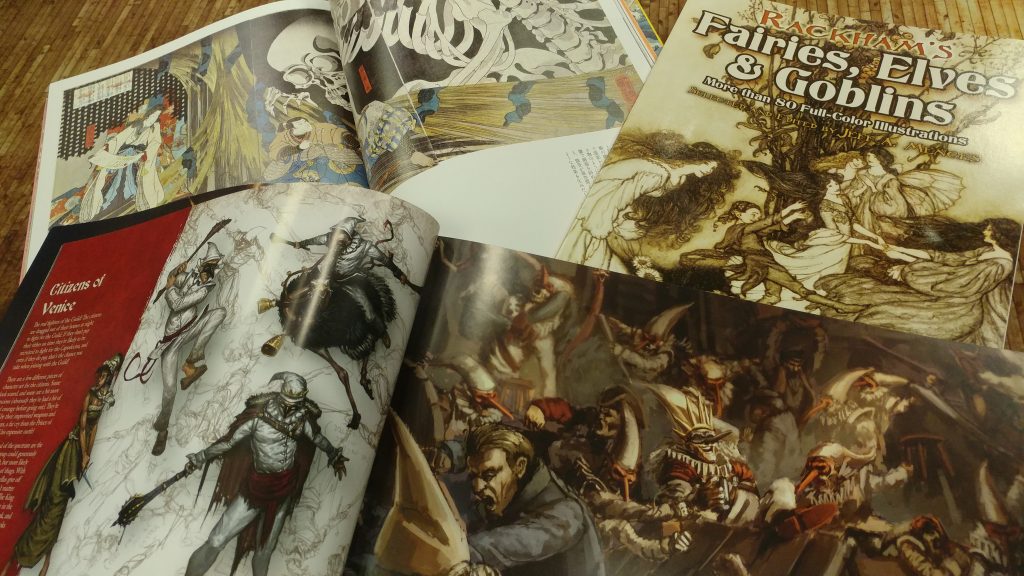
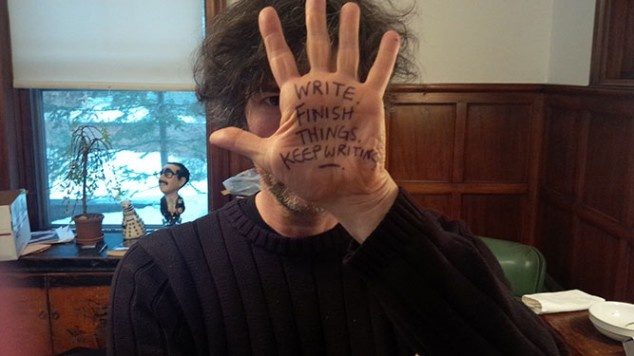
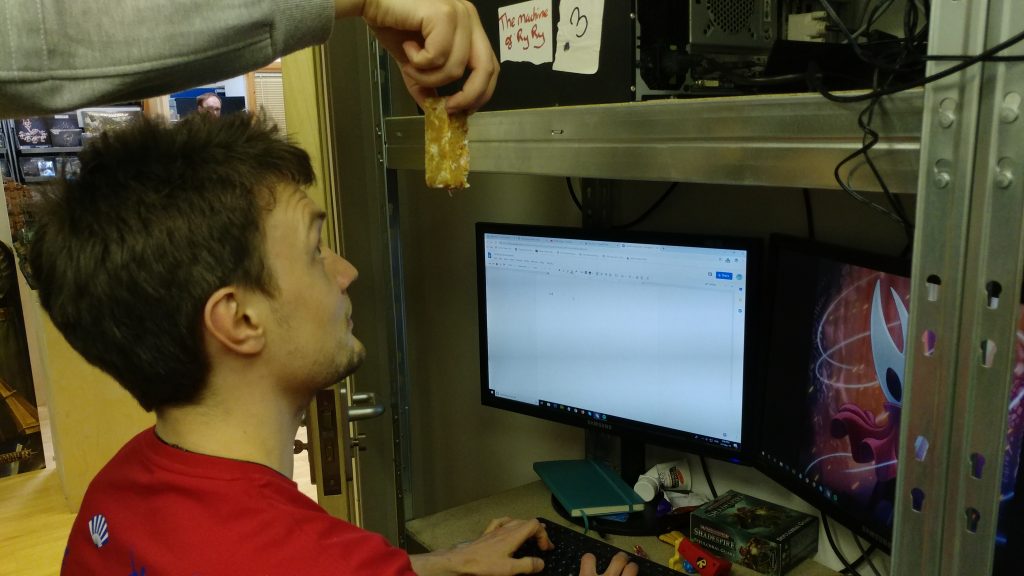
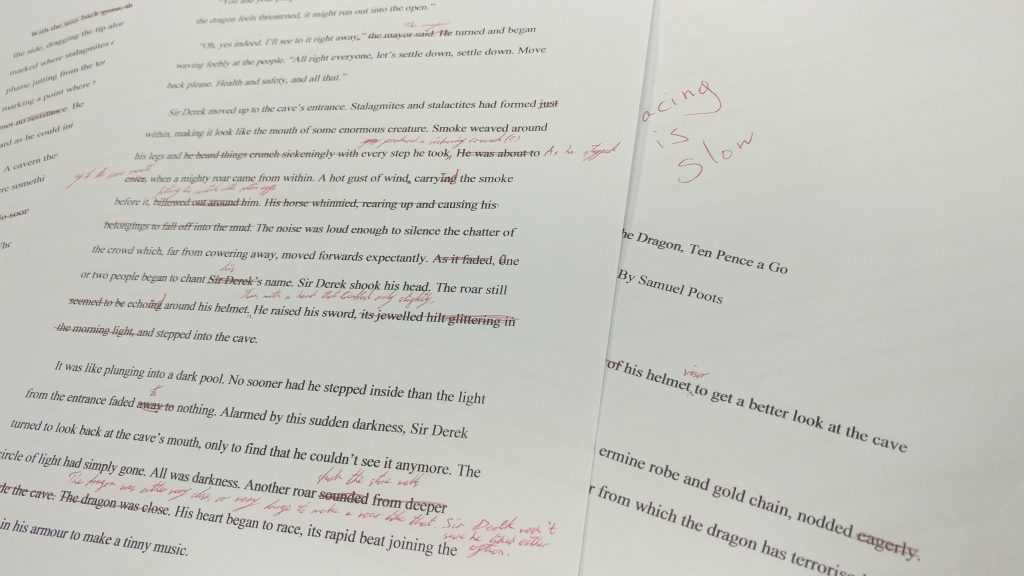
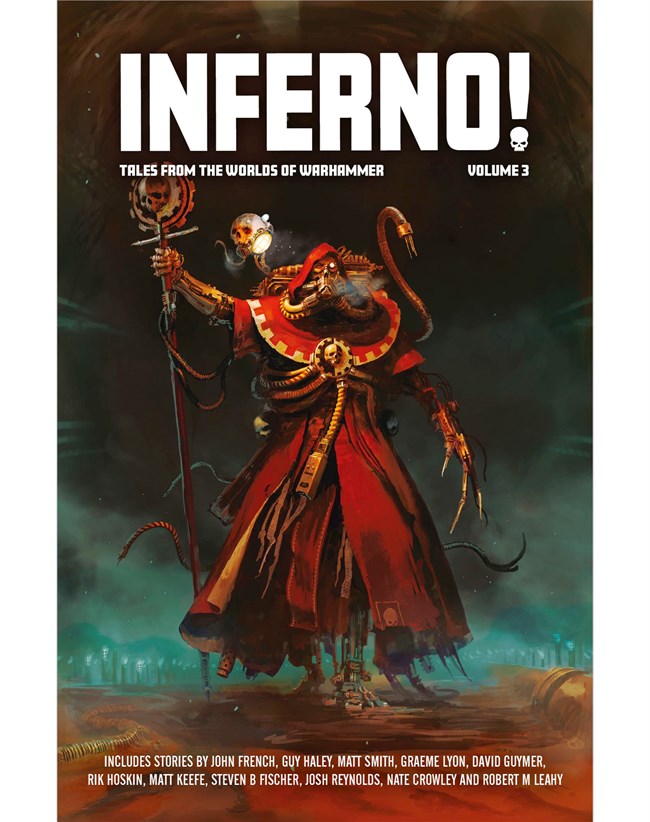
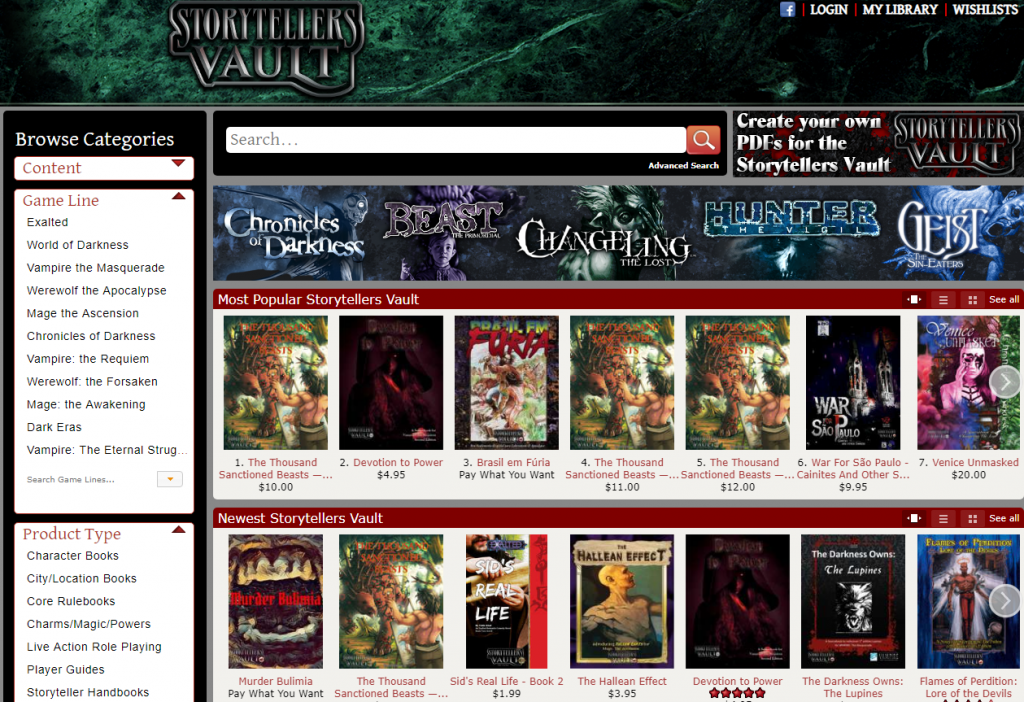
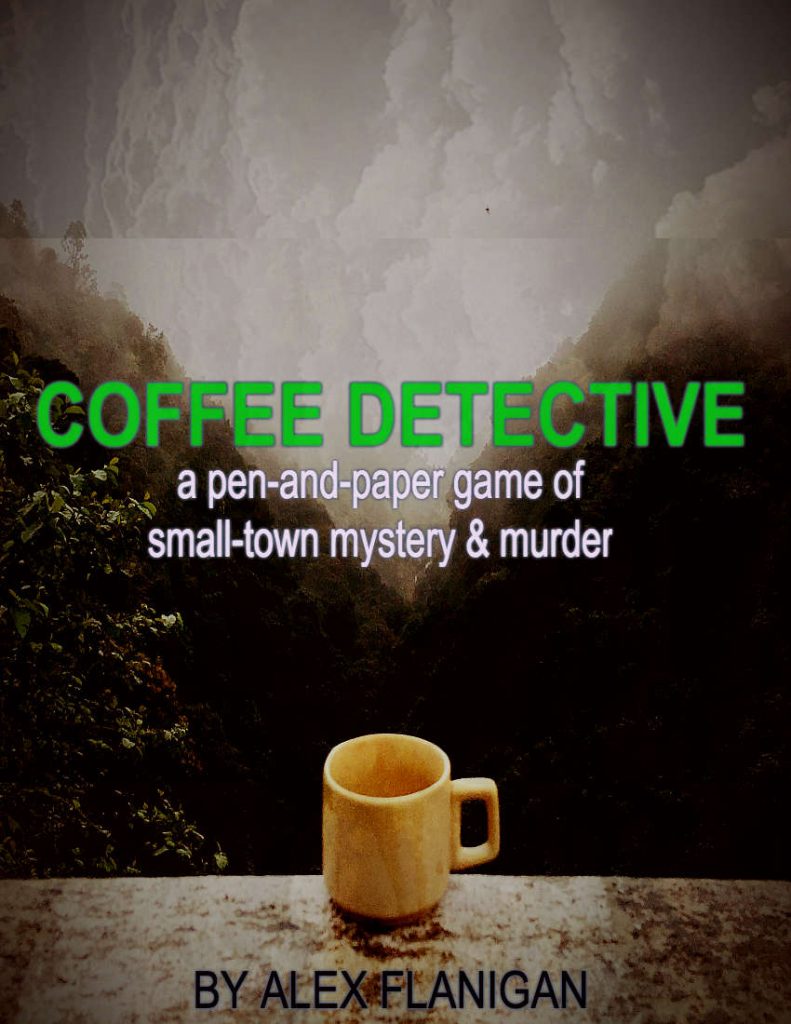
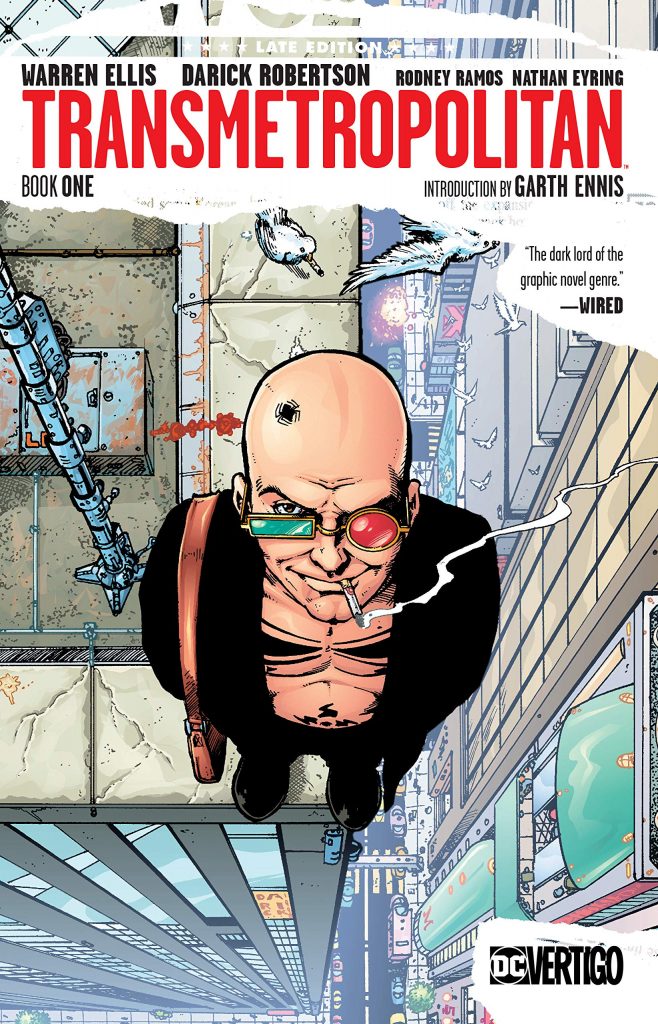


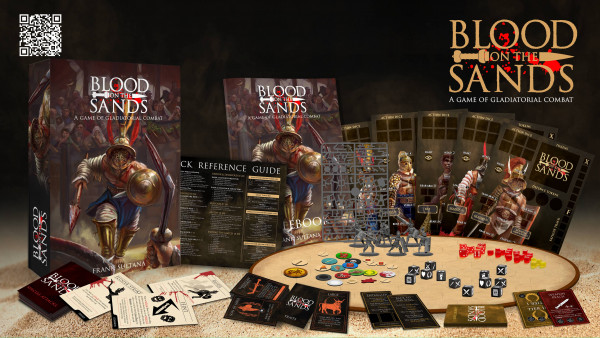
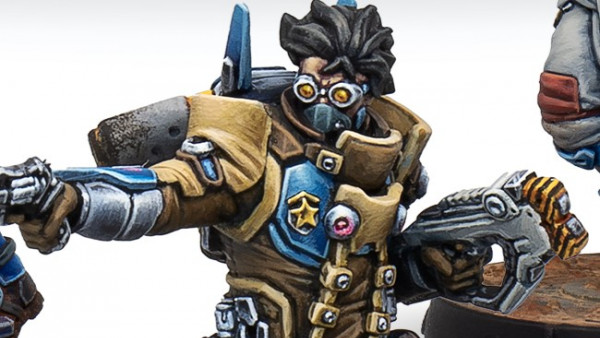

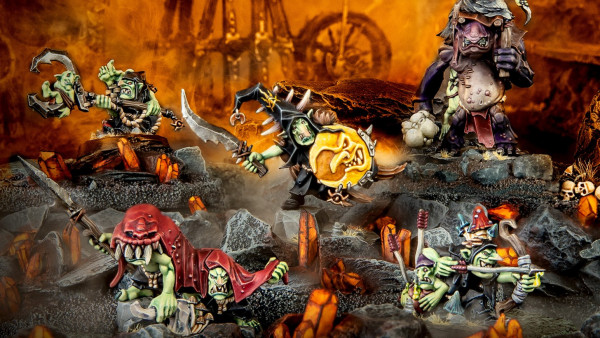
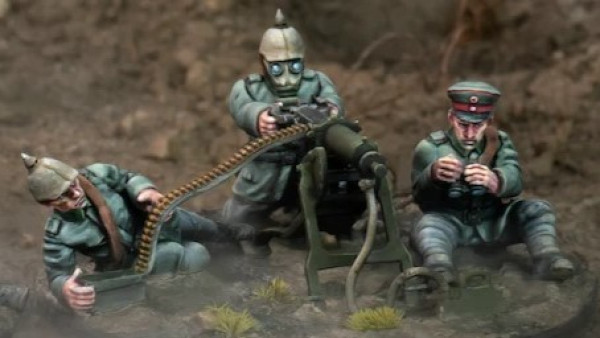
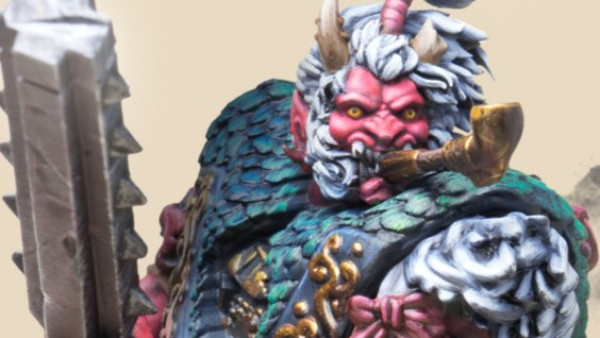
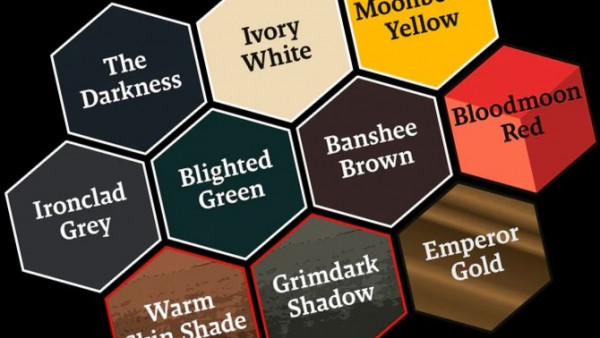

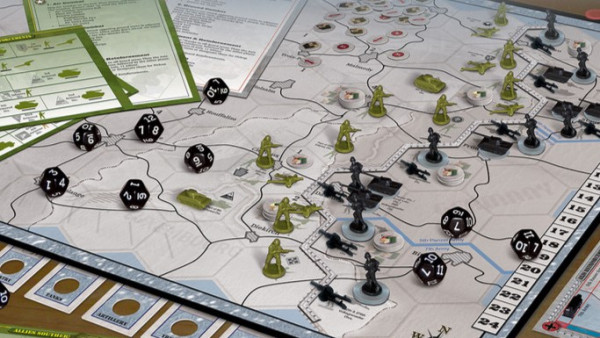










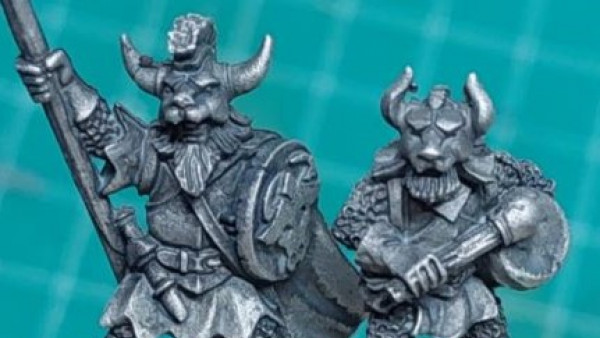

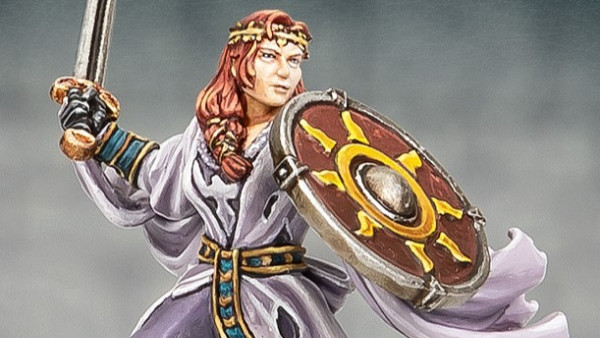

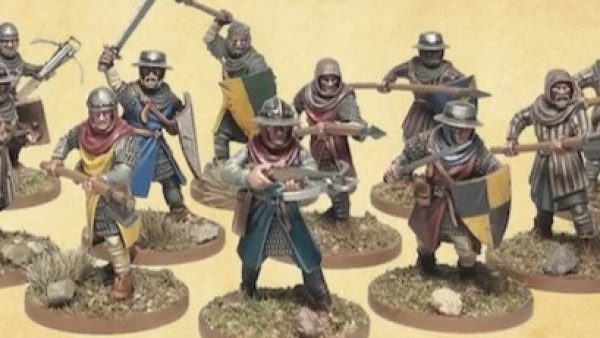
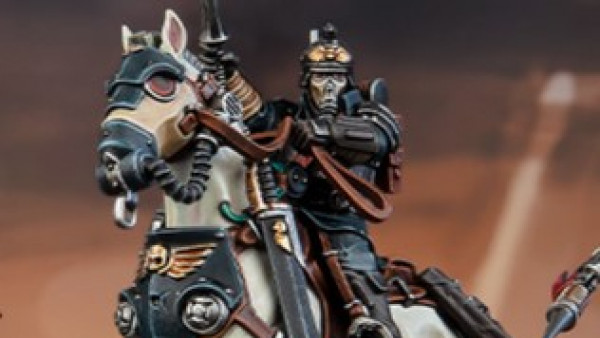

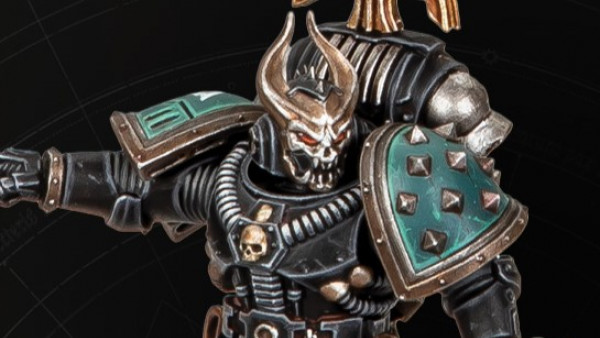
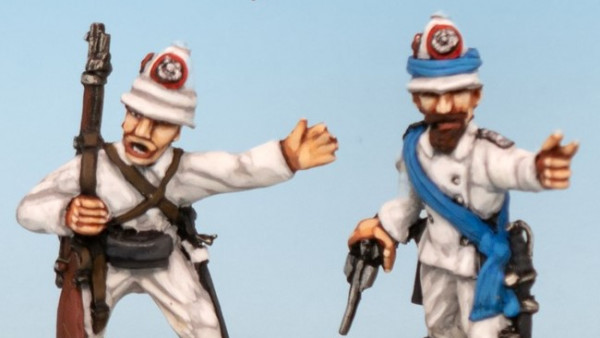

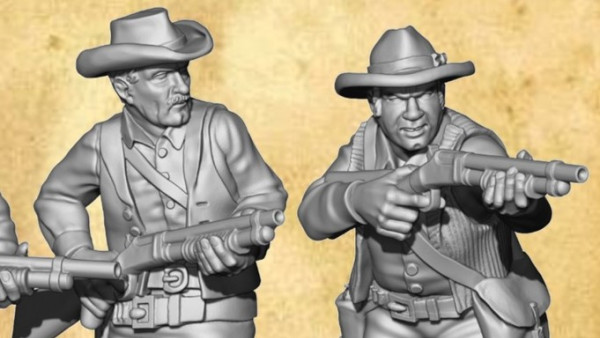


I think the mistake you’re making with leaving your manuscript out for the pixies is that it’s not pixies, it’s elves, and they only do cobbling. ?
Out of interest @dracs what was the bad advice Pterry gave you?
He told me to avoid other writers as they are the enemy. Which worked for him, but it cut me off from a valuable source of beta readers and support. It took me a long time to realise that, horror of horrors, not everything Terry Pratchett says is sacred.
You can actually see it here:
https://www.youtube.com/watch?v=siuaAm7bMGY
Was that actually you in the vid, or was it just something you’d watched when researching advice on writing?
I think finding your own style is key; if you spend all your time fretting over trying to be the next Pratchett, or Tolkien, or whoever, you’ll have no time to be the first you.
That’s me.
So how was it to meet him? 🙂
I was extremely star struck. I even got my name pulled out of a hat to be one of six people to have tea with him. I think I rather embarrassed myself going full fanboy. However, one of my proudest moments came when he started singing “As I Went Down To The River To Pray” and I was able to come in on the harmony. We ended up have a small impromptu choir with Terry Pratchett in the middle of the hotel lobby.
Yeah he was a nice bloke to meet
Sounds like fun. 🙂
Very good.
May I also ask you to give us a few hints on writing a good game review. I´m trying to do a review for a game for some time now. Try as I may, it just doesn´t work. The only thing I found is useful is setting a word limit. This helps avoiding keeping the bubbling low.
I when writing a review I think more importance should be put on how the game made you ‘feel’when playing and if you had a good time – sure mechanics are important but if it’s fun that’s what counts
When writing a review, I always say to focus on the things you like about it first, before moving onto any points of criticism. While I am an experience writer for fiction, I do tend to plan my reviews a bit more carefully. I tend to split them into four main sections: – Introduction – a general overview to the game and how I came to be experiencing it. – The positives – what I liked about it, split into the art and components (since they’re what you see first), and what I enjoyed about playing it. – The negatives… Read more »
I used to play and review computer games for a living and the format you listed is pretty much what we had to do… and it taught me the following… 1) Read the intro to see if you’re interested. 2) Read the final couple of paragraphs where the reviewer has his say. 3) Check how much advertising is in the magazine (I speak of the olden days when review were in magazines) and if there’s a lot… assume that the editor changed everything to make the ad sellers and company manufacturing the product happy. It might sound cynical, but although… Read more »
Nice article buddy, I always find reading out loud as if reading the story to someone else really helps me with finding issues with my spelling and grammar. It also often leads to changes in how I have structured my sentences and paragraphs.
I’ve started a number of books over the years, but gave up on everyone when the idea started flounder more than a politician trying to negotiate brexit.
What I learnt from my failed writing attempts is that it’s easy enough to write the action scenes and the dialogue, but connecting the pieces to form a coherent narrative is tricky… if you can’t figure out how to end a scene or the book, that probably means it needs rewriting from scratch.
A brilliant report @dracs my mind is a cluttered as a house after an avalanche has been through so I’ll just stick to the library books. But good luck in the future with you’re writing.
Although I’m someone who hasn’t wrote fiction since school, I did a part-time degree and had to write a lot. The biggest benefit of this was I write so much better than I did at the start. That’s every form of writing: technical docs, work emails, comments on the internet, even text messages. There’s no substitute: write, write, write.
Great article.